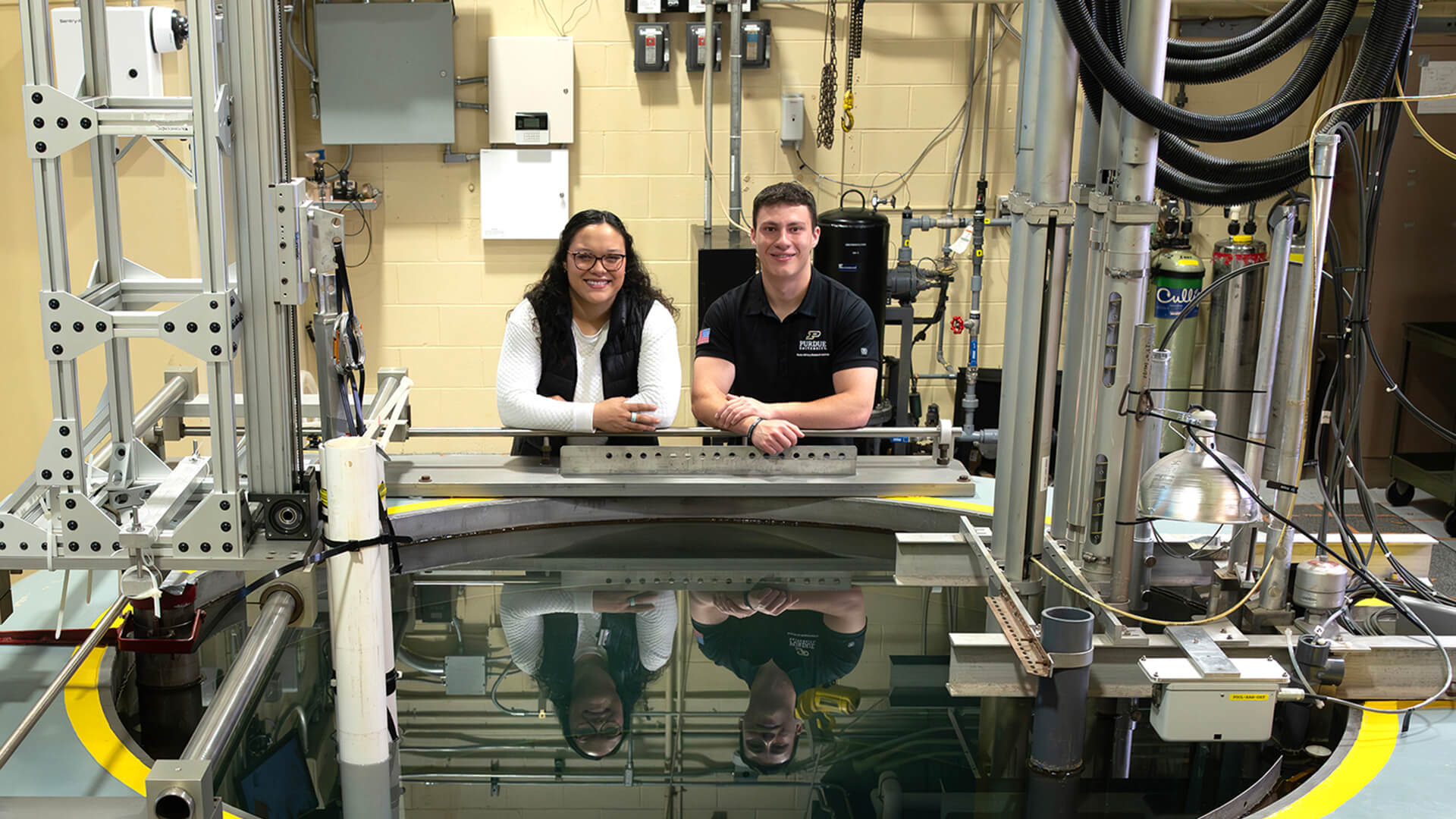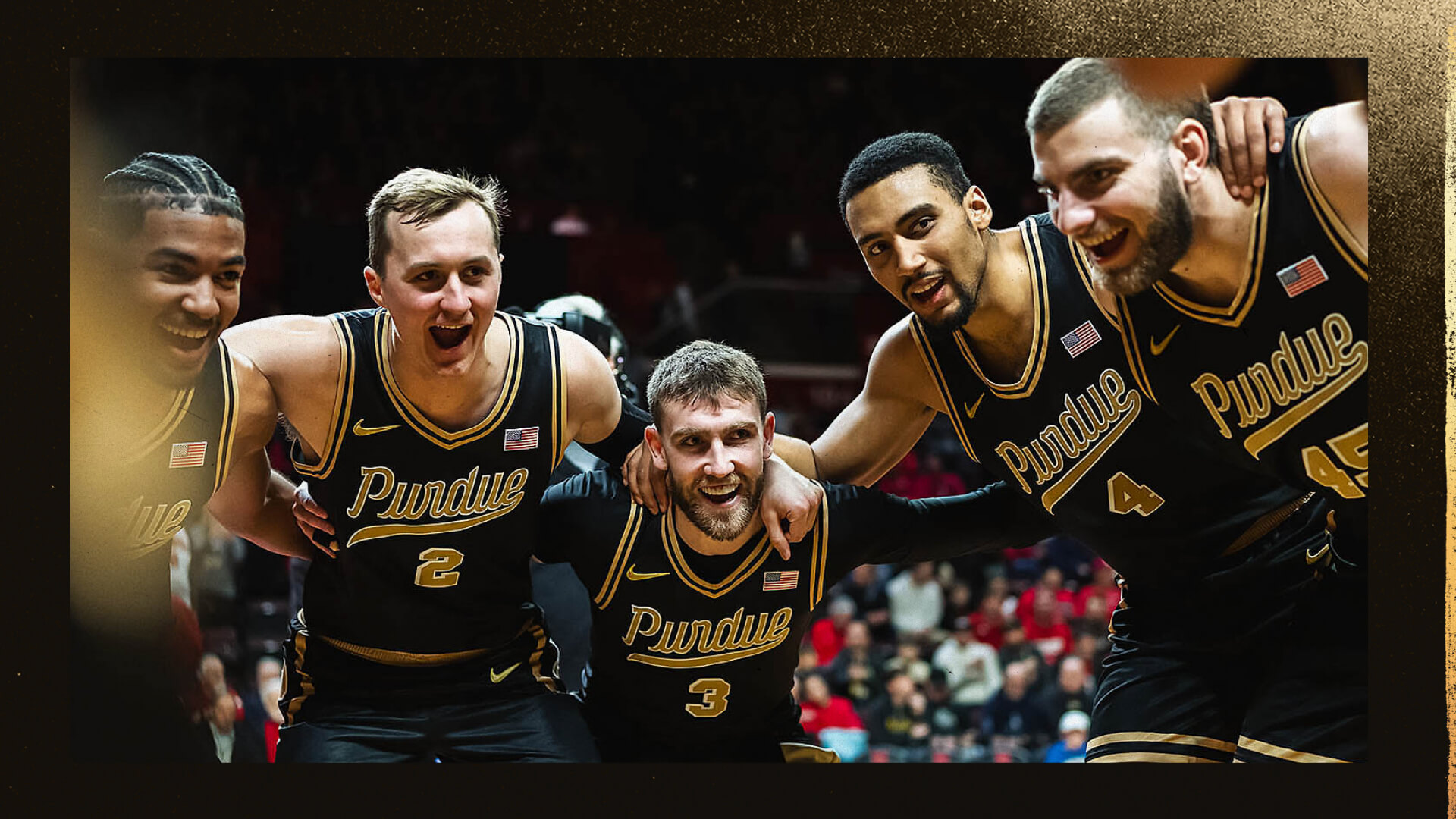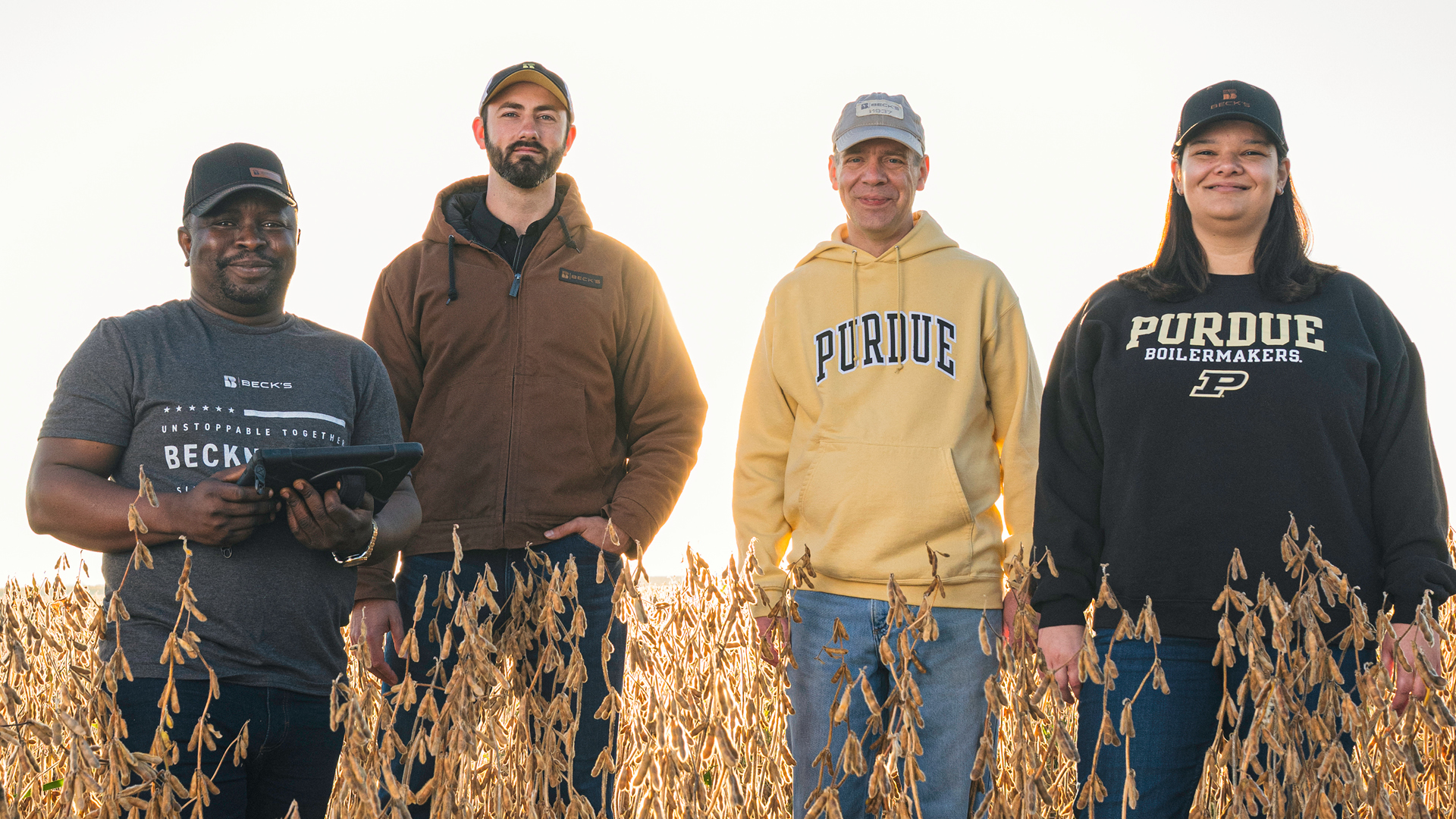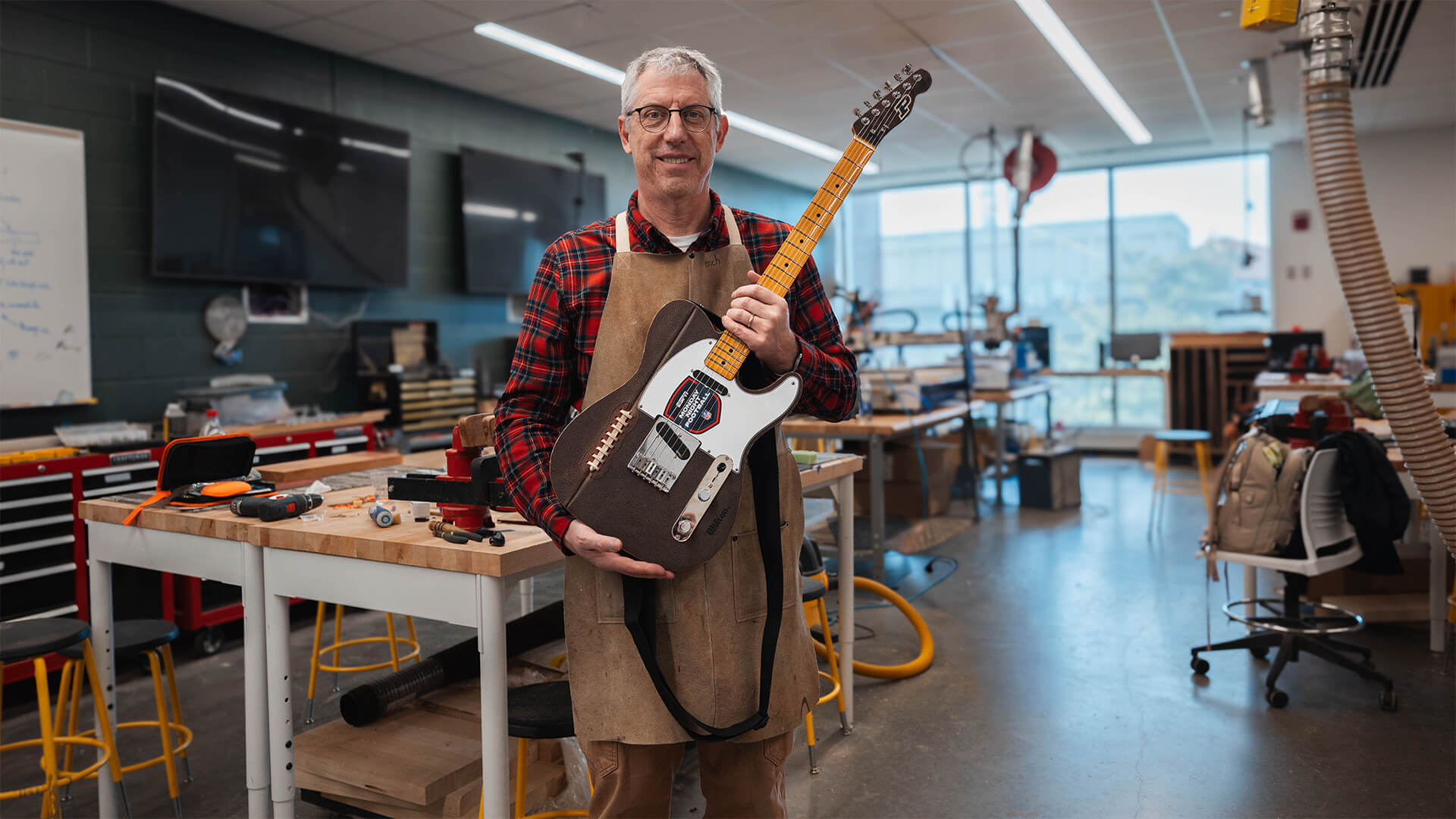Research and innovation create momentum for award-winning professor
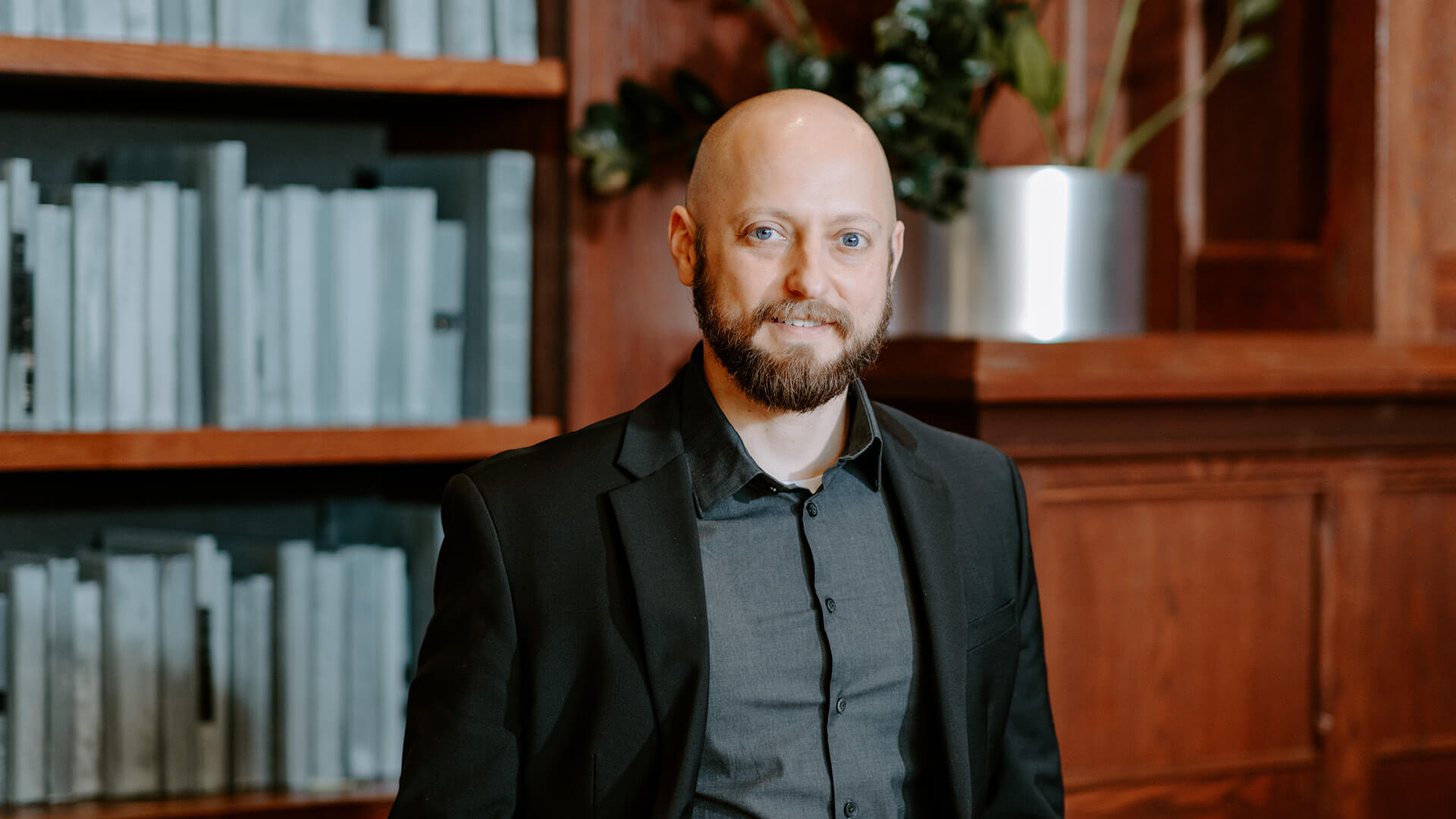
Preparing future teachers, improving current education programs and continuing to refine his own methods – Greg Strimel is promoting lifelong learning at Purdue. (Purdue University photo/Kelsey Lefever)
Charles B. Murphy Outstanding Undergraduate Teaching Award: Greg Strimel
A good professor creates a positive impact on their classroom, campus or field of study. A great professor persistently improves all three. Greg Strimel, an associate professor of technology leadership and innovation in the Purdue Polytechnic Institute, is one of those remarkably exceptional instructors.
Generating innovation at Purdue and influencing research initiatives beyond West Lafayette, Strimel has received the Charles B. Murphy Outstanding Undergraduate Teaching Award, the university’s highest undergraduate teaching honor. This recognition comes just two years after winning the Exceptional Early Career Teaching Award in 2021.
Though Strimel did not expect to win another prestigious honor so soon, he’s quick to relate what the award means to him.
“Everything,” Strimel says. “This award means everything.
“It’s really gratifying because students have to advocate for the winner. For me, it’s all about the students – getting to work with them gives us the opportunity to build the next generation of scholars, innovators and educators.”
Cultivating innovative environments
One of Strimel’s roles at Purdue involves the preparation of teachers, which is a top priority for him. Strimel has pioneered innovation in education throughout his career. These efforts include helping direct professional development programs geared toward improving STEM schooling across the country. He served as the lead author for the Framework for P-12 Engineering Learning and as the “Engineering in Action” section editor of the Technology and Engineering Teacher Journal.
I think that being a teacher and a researcher here at Purdue goes hand in hand. My enthusiasm for discovering new ideas is shared by, and with, the students.
Greg Strimel
Associate professor of technology leadership and innovation
Purdue Polytechnic Institute
“I think that being a teacher and a researcher here at Purdue goes hand in hand,” he says. “My enthusiasm for discovering new ideas is shared by, and with, the students.”
Collaborating in the classroom gives Strimel the chance to improve those national programs as well as refine the campus experience for Boilermakers. His students push him to try new ideas. Over the past few years, he’s been conscious of the role higher education plays in each student’s life. “We’re at a point where we can elevate the value of education,” he says.
“We shifted dynamically during the pandemic, and it’s made me continuously think: What is the real value of the educational experience? Students and instructors have seen that there’s tremendous value in being a part of a large research institution like Purdue. We have to continue to position our learning to take advantage of the opportunities and resources that come along with the research enterprise.”
Strimel strives to bring the many advantages on campus – organizations, activities, labs and industry connections – into classrooms and connect students with authentic work. Research experiences are a key component of this effort.
“Research helps us dive deep into a field, topic or challenge and allows students to make an impact with what they’re doing through education,” he says. “Together, we’re building meaningful work. That’s our strength at Purdue.”
These efforts don’t stop at the student level. Strimel also facilitates cooperative energy among faculty, helping run the Teaching Excellence Collaborative, an association within the Purdue Polytechnic Institute that supports instructors and gives them the space to continually rethink how they teach and what they can do to help one another.
“There’s not a lot of time where faculty get to sit down and talk about what happens in their classrooms,” he says. “The collaborative provides us with the opportunity to do that.”
Strimel describes it as “360-degree learning.”
“I’ve learned things from students and other instructors that I’ve embedded in my courses,” he says.
Contributing toward the university’s success
Efforts to promote problem-solving and cross-disciplinary teamwork have led Strimel to strengthen the university’s offerings. In 2018 he helped develop and introduce a minor in design and innovation. Students from any major can enroll in the program, which provides a pathway to authentically develop innovative ideas and support design-thinking capabilities.
The minor in design and innovation provides students the opportunity to work on passion projects they might not have been able to pursue otherwise. They have the time, resources and recognition they need to construct their own solutions to real-world problems.
Since its launch, the minor has engaged students from over 50 different majors. Strimel has enjoyed seeing it make waves across campus and wants to recruit even more ways of thinking across academic disciplines. He believes that the diversity of these disciplines only leads to better solutions designed for people.
“No matter what your background is, you have value to bring to the table,” Strimel says. “Your discipline is needed when you apply it to the challenges you’re solving.”
Those different majors have brought support from their respective schools, melding STEM ideas with the College of Liberal Arts and the Mitchell E. Daniels, Jr. School of Business. The convergence of colleges on projects has been remarkably rewarding. Strimel says, “There’s never a door that’s closed here.”
“I’ve always been encouraged in trying different things and pushing boundaries,” he says. “The network of support at a departmental level across colleges plus the university’s promotion of the design and innovation programming have been so helpful.”
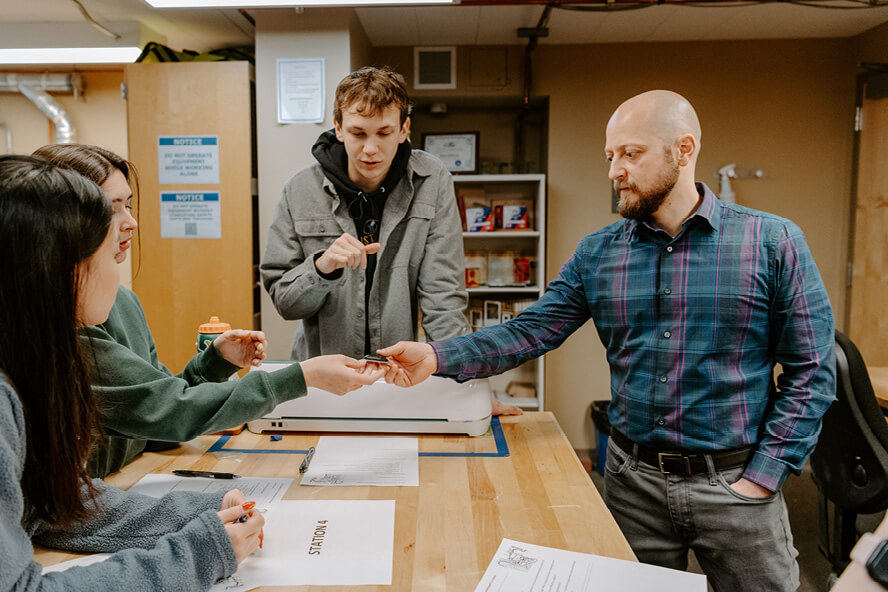
No matter what your background is, you have value to bring to the table. Your discipline is needed when you apply it to the challenges you’re solving.
Greg Strimel Associate professor of technology leadership and innovation
Purdue Polytechnic Institute
Constantly improving Boilermakers’ futures
A sure mark of Strimel’s success is seeing his students go on to secure patents, win design challenges, create new educational programs of their own and make a positive impact on the world.
The design and innovation minor, campus organizations, and industry competitions help build a peer mentorship mentality that motivates individuals and makes teamwork possible. Students have the time, space and flexibility to work toward something that’s meaningful.
Undergraduate opportunities lay the groundwork for perpetual growth, giving students the values and techniques needed to pursue their goals. From teaching students about data collection to helping students get published, Strimel oversees important progress.
And that progress always makes him excited for the next group of students. “I can’t wait to see what kinds of ideas they bring into the classroom,” he says. “Students are coming in from different disciplines and backgrounds. Getting to know them and the way they do things is expansive to my own understanding of what we can provide students at Purdue.”


